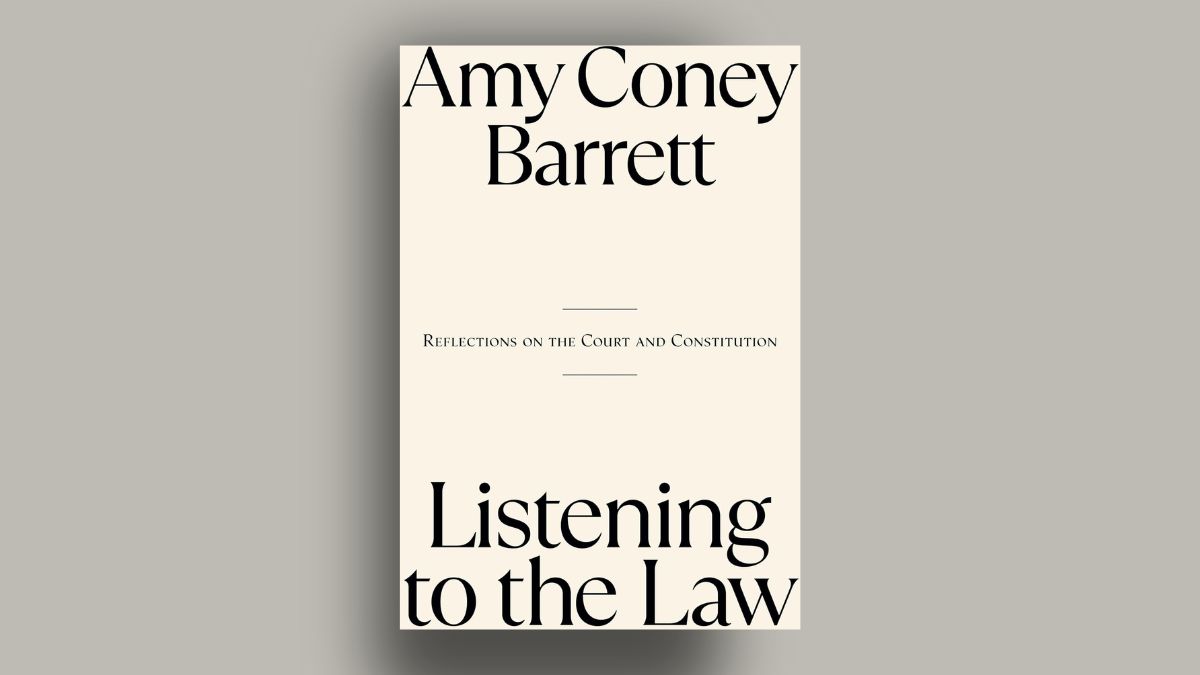Associate Justice Amy Coney Barrett's new book, Listening to the Law: Reflections on the Court and Constitution, released last week, provides a detailed look at the inner workings of the U.S. Supreme Court. The book aims to demystify how the Court operates, including how justices select cases and the opinion-writing process.
Explainer Supreme Court Allows Mississippi's Social Media Age-Verification Law to Proceed
Barrett's work addresses common questions about the judiciary, offering insights into the complexities of legal interpretation. She contrasts two primary judicial philosophies: originalism, which emphasizes adherence to the Constitution's original intent, and living constitutionalism, which allows for evolving interpretations to address contemporary issues.
In her book, Barrett states, "I’m not an originalist because I think that history yields easy answers or prevents bad judging. I’m an originalist because I think that it’s the right way to think about law." This perspective reflects her commitment to a method of interpretation that she believes is foundational to judicial integrity.
The book also explores the Supreme Court's emergency docket, a mechanism that allows the Court to address urgent legal issues. Barrett explains that there are two pathways for cases to reach the Supreme Court: the merits docket, where cases are fully litigated, and the emergency docket, where parties seek immediate relief from lower court decisions.
Barrett elaborates on the emergency process, noting, "The gist of an emergency application is this: ‘I can’t wait for the normal process to play out because the decision below is both wrong and incredibly harmful to me.'" This highlights the urgency that can accompany certain legal disputes, especially in politically charged contexts.
Critics have suggested that the Supreme Court has acted as a rubber stamp for the Trump administration in recent emergency cases. However, Barrett counters this narrative by emphasizing the stringent criteria that applicants must meet to receive temporary relief. She asserts that the justices are limited to resolving disputes brought before them, stating, "They can’t volunteer answers to questions that no one has asked."
Barrett's insights come at a time when the judiciary is increasingly scrutinized in the media. She argues that the judicial system functions best when litigants can fully present their cases, allowing for more deliberative decision-making. "The Court does its best to ensure that most cases get the benefit of that process," she writes.
Listening to the Law is positioned as a resource for both legal novices and experts, aiming to enhance public understanding of judicial processes. With the Supreme Court's role in American governance becoming more prominent, Barrett's book is timely and relevant, offering clarity on how the highest court in the land operates.
As the judiciary continues to face challenges and scrutiny, Barrett's reflections provide a glimpse into the principles guiding the Court's decisions and the importance of judicial philosophy in shaping legal outcomes.
Why it matters
- Barrett's book demystifies the Supreme Court's operations, enhancing public understanding of judicial processes.
- It contrasts originalism and living constitutionalism, highlighting differing judicial philosophies.
- The book addresses the Supreme Court's emergency docket, shedding light on urgent legal issues and decision-making.
- Barrett's insights come at a critical time of increased scrutiny on the judiciary, emphasizing the importance of judicial integrity.
What’s next
- Readers are encouraged to engage with the book for a deeper understanding of the Supreme Court's workings.
- Legal scholars may analyze Barrett's interpretations and their implications for future court cases.
- Public discussions and forums may arise around the themes presented in the book, fostering dialogue on judicial philosophy.

